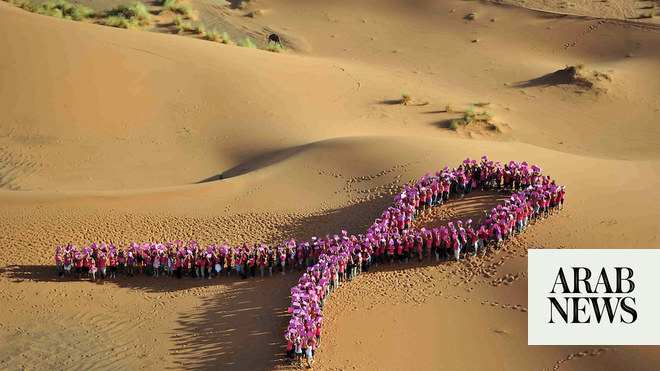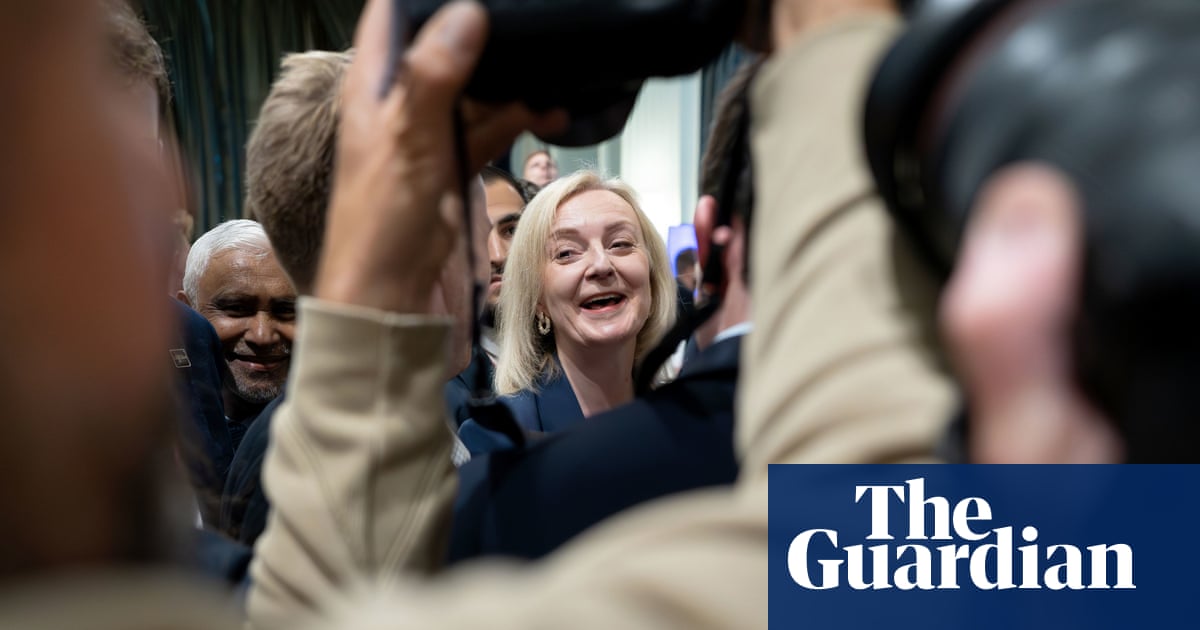
Cancer is often associated with social stigma in Arab societies, leading to late diagnosis and higher mortality
Early breast cancer diagnosis can result in much less aggressive treatments and a far higher survival rate
DUBAI: Despite significant efforts at early detection and new treatments, breast cancer claims the lives of over 680,000 women every year. In the Middle East, Arab women can be divided into categories including the proactive, fearful and negligent, as well as many who lack access to finances and proper care.
Afrah, a Dubai-based learning assistant from Yemen, is constantly encouraged by her husband to visit a breast-screening clinic for an exam. She repeatedly replies: “I don’t think it is necessary, as I am performing self-examination at home,” the 42-year-old told Arab News. “I think I am supposed to start visiting a breast clinic for a checkup now.”
Her tone does not suggest that she will do so, and she is not the only one.
Despite national breast cancer awareness campaigns across the Middle East launched every October, inspirational survivor stories, technological advancement in early detection and treatment, and the moderate growth in the number of women visiting clinics for mammograms, a large number of Arab women are still hesitant, with many afraid of possibly receiving terrible news.
Fawziah, a 44-year-old Emirati engineer, who lost her mother to cancer, has been going for her annual checkups for 10 years. “Women who feel reluctant to do regular checkups always come up with different excuses. But in my opinion, all these excuses are just evasion and fear,” she told Arab News.
In 2020, there were 2.3 million women diagnosed with breast cancer. In the five years up to the end of 2020, there were 7.8 million women alive who were diagnosed, making it the most prevalent cancer worldwide.
With significant advancements in early detection and massive awareness campaigns, breast cancer mortality rates have certainly reduced over the past four decades.
However, the danger continues to lurk in the darkness as long-held taboos, shame and negligence overwhelm conservative communities. Many countries across the region have been working to educate the public and stress the importance of early detection.
Burying one’s head in the sand can be risky, said Dr. Millicent Bello, a prominent breast oncoplastic surgeon at Fakeeh University Hospital in Dubai.
“I think there is a bit of anxiety and fear of (being diagnosed with) breast cancer in the majority of women. Even (among) doctors, nobody wants to be told they have breast cancer,” she told Arab News.
Bello said that not going for regular tests was “just like allowing some small fire to become a major, major fire.”
Misconceptions and misinformation also play a role as many women get their information on mammograms online or from relatives, said Dr. Shireen Ahmad, a radiologist at King’s College Hospital London-Dubai.
Women are also afraid of the effects of radiation, Ahmad explained to Arab News. “I tell all my ladies: ‘Do you think twice about jumping on the plane and flying to London for your shopping? You don’t. You don’t even think about the amount of radiation you get on a flight.’ It is equivalent to the dose you get from the mammogram,” she said.
Financial and social factors also keep women from accessing regular screening. In many Arab countries, annual mammograms are not covered by health insurance.
When a lump is found the patient is required to keep checking it regularly. “This can be stressful, and costly, too, so she stays away from screening from the very beginning,” Faten, a Jordanian nurse who requested anonymity, said in an interview with Arab News from Amman.
“Not all the segments of society realize that cancer can be cured and patients can resume their normal life,” Faten added, explaining that female cancer patients prefer not to share their status to avoid questions about details they consider private and personal.
Researchers say that cancer in general and breast cancer in particular is associated with significant social stigma in many Arab societies. There are feelings of shame and guilt, and sometimes cancer is even viewed as a sign of punishment for undisclosed sins.
Earlier this year, a study published in the American Society of Clinical Oncology Journal titled “Cancer Burden Among Arab-World Females in 2020: Working Toward Improving Outcomes,” said that one in six women will develop cancer during their lifetime, and one in 11 women will die from the disease.
The study acknowledges that data on female cancers in the Arab region is “scarce.” However, it is the most common cancer in incidence and mortality among Arab women, who account for nearly 48 percent of the 445 million Arab population.
Another study, “Breast Cancer in the Arab World,” published in Springer, stated that the exact prevalence and incidence of cases are not known due to the lack of structured cancer registries.
“In addition, mortality registries and disease-specific mortality records are lacking and largely unknown.”
The study added that most Arab countries do not have structured universal screening programs and “most women who undergo mammograms are either self-motivated, advised by afflicted family members, or motivated (by) physicians.”
Moreover, mammography centers, trained personnel, and “existing units are not universally monitored for quality, results, and reporting by any overseeing agency.”
Delay in seeking medical advice and impaired access to adequate care leads to Arab female cancer patients being diagnosed in the more advanced stages of the disease compared to women in Western countries, according to the study.
“With few exceptions … Arab countries lack universal access to comprehensive cancer care centers or patient care by specialized cancer care teams with the adequate advanced oncologic training and expertise needed to provide required complicated treatment plans, leading to suboptimal cancer care,” the study stated.
For example, “the rate of modified radical mastectomies in Arab countries is much higher than that in internationally reported literature,” reaching up to two-thirds of cases. Nearly 21 percent of patients undergoing such a procedure will develop clinically significant lymphedema or swelling, which could be avoided in some patients.
Radical mastectomies, in which the entire breast, chest muscle, and often the lymph nodes are removed, are often performed due to insufficient radiation therapy. More advanced techniques and procedures, such as removing the lymph nodes for biopsy, are also unavailable.
Moreover, reconstructive surgeries are not always available, and health insurance does not cover them when they are.
The high cost of cancer treatment in the Arab world adds to patients’ burdens. Researchers noted that medications and financial coverage by governmental and non-governmental insurance plans are limited. New and expensive treatments for breast cancer are available in some high-income Arab countries.
The introduction of “immuno-oncology” and targeted therapy drugs were among the leading cancer treatment developments in the past few years in treating cancer, Dr. Khawla Abu Izza, an Arab-American pharmaceutical development and CMC, or Chemistry, Manufacture and Control, regulatory consultant, told Arab News.
These drugs generally are reserved for patients at an advanced stage of the disease. There are few exceptions, said Abu Izza
“There have been several significant developments in the treatment of breast cancer, each contributing to the improvement of the outcome for patients, but we cannot point to a single major development that made a huge difference … Some of the developments were in the dosing regimens for radiation therapy or improvements in the surgical procedures.”
In some of the medical institutions in the Gulf region, highly advanced screening machines have become available, and their results are very precise, according to Ahmad.
New technology in screening machines can test the softness and the hardness of lesions, and dye can be used to highlight tumors.
Ahmad said wire localization biopsies and radioactive seed localizations are among the procedures used to identify the targeted area before surgical procedures are done.
Bello stressed that research into breast cancer is continuously underway to achieve better results. “Over the years, research into breast cancer has continued regardless of COVID … Surgeries are more personalized, and there is no one size that fits all.”
However, the core message remains the same: Early diagnosis leads to less aggressive treatment and a much higher survival rate.











